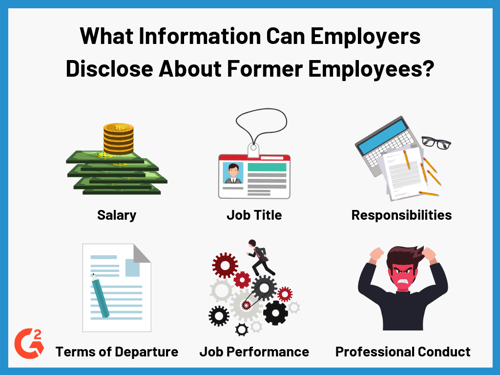
We’ve all been there. A situation at work arises and the action your management or the HR department takes has you scratching your head and wondering: are they really allowed to do that?
A dose of healthy skepticism is good—questioning situations that make you uneasy in your workplace can keep you from being taken advantage of, or maybe show you the signs for when to quit your job. But it’s important to remember that while a situation may make you feel uneasy, not everything that rubs us the wrong way at work is illegal.
When it comes to dealing with HR, determining the difference between company policy and the law is key, especially if you are a disgruntled employee.
The first step to understanding your rights as an employee is to know the law. There are special protections and laws in place specifically designed for employment and workers’ rights and it’s to your benefit to know them.
HR law, or human resources law, refers to the state and federal laws regarding human resources management and employment issues. Workplace related topics that fall under HR law include compensation, recruitment, termination, and discrimination laws.
The difference between corporate policy and HR law is pretty simple: corporate policy are rules and regulations set in place by your individual employer. You agree to adhere to these policies when you sign your employment contract and they differ from employer to employer. HR law refers to the state and federal laws that all employers must adhere to regardless of industry.
It can be difficult to relate HR law to actual work experience. Here are some real-life applications of HR law. That’s why we’ve put together answers to common questions regarding HR law:
Yes and no, it depends on what they are asking and who they are asking.
Your employer can ask questions about your health that may help them determine if they need to make reasonable adjustments for you or other employees. They are also free to ask questions for monitoring purposes, e.g. if you have been diagnosed with seizures, they may need to know what actions to take should you have an episode at work.
However, you are not obligated to give this information out if you don’t want to. Your employer is on a need-to-know basis about your health and if you choose to deny them this information, they cannot seek it out from other sources.
The Health Insurance Portability and Accountability Act (HIPAA) establishes clear privacy guidelines between health care providers, insurers, and patients. Within HIPAA there is a section known as The Privacy Rule and that outlines the type of information your doctor may provide to an employer.
In general, The Privacy Rule restricts the information your doctor or any healthcare provider can disclose to your employer. They cannot disclose your medical history, any pre-existing conditions you may have, and information about being absent from work due to an illness.
| Tip: The Privacy Rule protects your information regarding all forms of communications, whether it be written or verbal. |
As a general rule, your medical information is confidential and can only be released to your employer if you have given written authorization. You should also know that giving written authorization to your employer doesn’t mean they can then share your information with other employees or managers.
Your medical history is sensitive information and if you believe your rights have been violated, there are laws in place to protect you.
It depends, particularly on what they lied about.
If your HR manager lies about something big, like telling a potential employer why they fired you or even slandering your name due to a grudge, those may be considered libel or slander and could be violations of defamation laws and could lead to legal action.
| Tip: Interested in reading more? Learn more about libel vs. slander and everything you need to know about defamation. |
However, there are some situations where an HR professional will be put in a position where they have to lie by omission or mislead someone.
Maybe there are promotions in the works but HR can’t confirm anything until the paperwork is finalized. Or perhaps there is a merger coming up but the final documentation hasn’t been signed. These are situations where HR might be forced to lie to employees with cause.
Yes, HR can put you on a discipline or performance improvement plan. These things are often discussed beforehand with your manager, and they will typically be included in the process.
It’s important to know your rights when you’re put on a discipline plan. You have the right to receive everything that has been discussed in writing. You have the right to have access to any tools or materials you’ll need to successfully complete the plan, and you have the right to meet with and speak about HR regarding the process at any point.
Yes. Your manager does not have to be the one to fire you. The HR manager at your company can be the one to deliver the bad news. It is up to each company to decide the involvement HR has in the actual verbal firing.
With the exception of extreme situations, HR and your manager will have been in communication about your termination long before the actual meeting takes place.
|
Your HR department is responsible for several aspects of the termination process, including:
|
Barring an extreme circumstance, you have the right to ask any follow-up questions you have regarding being let go and collect your belongings from your desk before vacating the premises.
Yes, but most probably won’t disclose too much information.
There are no federal laws that prevent what information your employer can or cannot disclose about former employees. If you were fired from your previous job, your former employer is within their legal right to say so and share the details of your termination.

However, because of the strict laws surrounding defamation, slander, and libel, most companies are extremely careful about what information they disclose about former employees. Many prefer to err on the side of caution and limit the information they disclose to your dates of employment, position, and salary.
Yes and no, as was mentioned above, most HR departments are very careful about what they disclose to your potential employer. Salary information is one of the few things that HR departments will tell outside sources about because it is a well-documented piece of information tied to your employee information. The risk for a defamation lawsuit when disclosing your salary information to an outside employer is nearly non-existent which is why they will share it.
However, your HR department should not be sharing your salary information with other people within your organization while you are employed there. This is considered privileged information between you and your employer and shouldn’t be shared with your peers.
Yes they can, but they probably shouldn’t.
The law does not prohibit your employer from asking about whether or not you are pregnant. However, the EEOC discourages HR professionals from asking this information because using that information to discriminate against an employee is illegal.
Your HR manager may ask you about a pregnancy in order to establish plans for covering job responsibilities and they are within their legal right to do so. And even if it may seem rude to do so, it’s also not illegal for them to ask out of sheer curiosity.
The good news is that you're not legally obligated to answer their questions if you're not comfortable.
If your HR manager uses your answers to then deny you a promotion, a raise, or thwart your career growth, that is illegal and you should seek out legal help with your situation immediately.
Yes, they can.
When an employee files a complaint with HR there is an expectation of anonymity that most HR managers will honor.
However, there are some situations where HR must break employee anonymity in order to correctly handle things. If you file a complaint of sexual harassment your HR department is legally obligated to act or they may be liable for the actions of the accused harasser. This is true even if you tell HR that you don’t want any action taken and just want them to be aware. The same goes for cases of racial or gender discrimination.
Your anonymity may also be revoked if your complaint folds into a larger investigation. HR may have no choice but to bring you as a witness for a complaint filed by another employee. In general, your HR department will do their best to honor your wishes for anonymity but they are not legally obligated.
It depends, specifically on what is included in your employee handbook.
As a way to protect themselves against legal ramifications, most HR managers will include a section in their employee handbook that states that the rules are subject to change at the employers discretion. If your handbook has a similar clause, your employer likely isn’t breaking any laws by ignoring what’s in the employee handbook and there’s not much you can do.
However, there are exceptions to this. Even if your employee handbook has a clause claiming the rules are subject to change, there are some rules that your employer must adhere to. In these particular scenarios, your employer is required to follow their policies as written or face possible legal liability.
|
Your employer is required to follow their policies as written or face possible legal liability in these cases:
|
If you think your employer is in violation of the law or a contract, you should ask yourself this question: did you sign something that suggests a legal agreement to the written policy? If so, your employer may be in violation of the law by ignoring or disregarding these policies.
Not without cause. There are two-types of retaliation at work, justified and unjustified by law. Justified retaliation can be better understood as workplace consequences. If you steal from your place of employment and they fire you, they are retaliating against you but it is a justified situation.
This section will be primarily focused on unjustified retaliation aka illegal workplace retaliation.
Illegal workplace retaliation refers to a negative action or punishment brought down on an employee for engaging in a legally protected activity. Workplace retaliation can include demotion, discipline, salary reduction, job or shift reassignment, being removed from a project, or termination.
Illegal workplace retaliation can be tricky to pin down. In some cases, what employees perceive as workplace retaliation is actually a consequence related to workplace performance. Let’s look at two examples and determine whether or not illegal workplace retaliation has taken place:
|
Scenario 1: Your supervisor has been making inappropriate comments to you, and you reported their actions to HR one week ago. Today, the supervisor has taken you off a big account and denied you a promotion that you were set to receive at the end of the month. You set a meeting with your boss to get an explanation for this change but they cannot provide any answers. They avoid any attempts to meet and discuss the state of things and refuse to answer any emails you send them regarding the situation. |
Is this illegal retaliation? Most likely, yes. In this situation, it would appear that your supervisor discovered that you were the one who reported them to HR and is now making life difficult for you as a way to get revenge.
|
Scenario 2: You've been warned about your job performance in two previous meetings with your manager. After another poor performance review, your boss removes you from a big project with an important client. You meet with your boss and they explain that your mistakes have cost the company a lot of time and money. Your boss agrees to consider putting you back on the project on the condition that you successfully complete a performance improvement plan. |
Is this illegal retaliation? No, it’s not. The consequences here are a direct result of poor performance on the job, which is not a legally protected action. While there are consequences being handed down in this scenario, they are fair within the context of the situation.
In any situation where you think you may be facing retaliation, ask yourself this question: is the action that I took protected by state or federal law, and am I now facing unreasonable consequences for acting within my legal rights? If so, the action likely falls into illegal retaliation.
If you think you’re being illegally retaliated against, you should take your concerns to the EEOC ,or your state's fair employment agency. You can also check your state labor laws for any questions you have regarding HR law.
If you believe your HR department has overstepped its legal bounds, the best thing to do is consult a lawyer who specializes in employment law. This article can only serve as a jumping off point—you’re always better off consulting a professional.
HR Managers, looking for an easy way to stay compliant? Find the best HR Compliance software according to G2 users. 
Lauren Pope is a former content marketer at G2. You can find her work featured on CNBC, Yahoo! Finance, the G2 Learning Hub, and other sites. In her free time, Lauren enjoys watching true crime shows and singing karaoke. (she/her/hers)
As you look towards advancing your career in human resources, it’s important that you do all...
 by Derek Doeing
by Derek Doeing
As a recruiter or hiring manager, you probably spend hours crafting thoughtful questions to...
 by Yashwathy Marudhachalam
by Yashwathy Marudhachalam
“Do you have anything to ask me?”
 by Tamara Gravelle
by Tamara Gravelle
As you look towards advancing your career in human resources, it’s important that you do all...
 by Derek Doeing
by Derek Doeing
As a recruiter or hiring manager, you probably spend hours crafting thoughtful questions to...
 by Yashwathy Marudhachalam
by Yashwathy Marudhachalam


